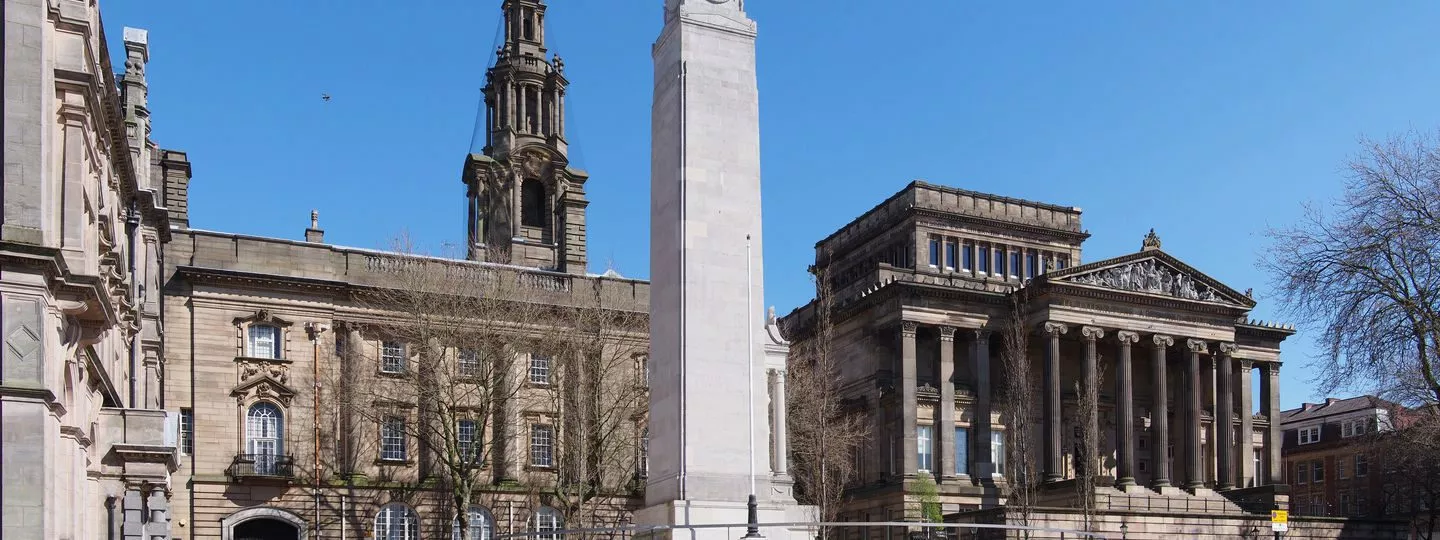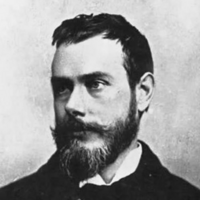
Francis Thompson
Francis Thompson (16 December 1859– 13 November 1907) was an English poet and ascetic. After attending college, he moved to London to become a writer, but could only find menial work and became addicted to opium, and was a street vagrant for years. A married couple read his poetry and rescued him, publishing his first book Poems in 1893. Thompson lived as an unbalanced invalid in Wales and at Storrington, but wrote three books of poetry, with other works and essays, before dying of tuberculosis in 1907.
Francis Thompson (16 December 1859– 13 November 1907) was an English poet and ascetic. After attending college, he moved to London to become a writer, but could only find menial work and became addicted to opium, and was a street vagrant for years. A married couple read his poetry and rescued him, publishing his first book Poems in 1893. Thompson lived as an unbalanced invalid in Wales and at Storrington, but wrote three books of poetry, with other works and essays, before dying of tuberculosis in 1907.
Life and work
Thompson was born in Winckley Street, Preston, Lancashire. His father, Charles, was a doctor who had converted to Roman Catholicism, following his brother Edward Healy Thompson, a friend of Cardinal Manning. Thompson was educated at Ushaw College, near Durham, and then studied medicine at Owens College, now the University of Manchester. He took no real interest in his studies and never practised as a doctor, moving instead to London in 1885, to try to become a writer. Here he was reduced to selling matches and newspapers for a living.
During this time, he became addicted to opium, which he first had taken as medicine for ill health. Thompson started living on the streets of Charing Cross and sleeping by the River Thames, with the homeless and other addicts. He was turned down by Oxford University, not because he was unqualified, but because of his drug addiction.
Thompson attempted suicide in his nadir of despair, but was saved from completing the action through a vision which he believed to be that of a youthful poet Thomas Chatterton, who had committed suicide almost a century earlier. A prostitute– whose identity Thompson never revealed– befriended him, gave him lodgings and shared her income with him. Thompson was later to describe her in his poetry as his saviour. She soon disappeared, however, never to return, in his estimation because she feared she would taint his growing reputation. In 1888, he had been 'discovered’ after sending his poetry to the magazine Merrie England. He had been sought out by the magazine’s editors, Wilfrid and Alice Meynell. Recognizing the value of his work, the couple gave him a home and arranged for publication of his first book Poems in 1893. The book attracted the attention of sympathetic critics in the St James’s Gazette and other newspapers, and Coventry Patmore wrote a eulogistic notice in the Fortnightly Review of January 1894.
Concerned about his opium addiction, which was at its height following his years on the streets, the Meynells sent Thompson to Our Lady of England Priory, Storrington.
Thompson subsequently lived as an invalid at Pantasaph, Flintshire in Wales and at Storrington. A lifetime of extreme poverty, ill-health, and an addiction to opium took a heavy toll on Thompson, even though he found success in his last years. He would eventually die from tuberculosis at the age of 47, in the Hospital of St John and St Elizabeth and he is buried in St. Mary’s Roman Catholic Cemetery in Kensal Green. His tomb bears the last line from a poem he wrote for his godson - Look for me in the nurseries of Heaven.
Style and influence
His most famous poem, The Hound of Heaven, describes the pursuit of the human soul by God. This poem is the source of the phrase “with all deliberate speed,” used by the Supreme Court in Brown II, the remedy phase of the famous decision on school desegregation. A phrase in The Kingdom of God is the source of the title of Han Suyin’s novel Love Is a Many-Splendored Thing. In addition, Thompson wrote the most famous cricket poem, the nostalgic At Lord’s. He also wrote Sister Songs (1895), New Poems (1897), and a posthumously published essay, Shelley (1909). He wrote a treatise On Health and Holiness, dealing with the ascetic life, which was published in 1905.
G. K. Chesterton said shortly after his death that “with Francis Thompson we lost the greatest poetic energy since Browning.” Among Thompson’s devotees was the young J. R. R. Tolkien, who purchased a volume of Thompson’s works in 1913-1914, and later said that it was an important influence on his own writing. The American novelist Madeleine L’Engle used a line from the poem The Mistress of Vision as the title of her last Vicki Austin novel, Troubling a Star. In 2011, Thompson’s life was the subject of the stage play and film script HOUND (Visions in the Life of the Poet Francis Thompson) by writer/director Chris Ward, which has been performed in various venues around London.
Jack the Ripper suspect
In his 1999 book Paradox, Australian author and educator Richard Patterson named Thompson as a possible identity of serial killer Jack the Ripper. On 6 November 2015, Patterson strengthened his claim.
Home
Thompson’s birthplace, in Winckley Street, Preston is marked by a memorial plaque. The inscription reads: "Francis Thompson poet was born in this house Dec 16 1859. Ever and anon a trumpet sounds, From the hid battlements of eternity." The home in Ashton-under-Lyne where Thompson lived from 1864 to 1885 was also marked with a blue plaque. In 2014, however, the building collapsed.
References
Wikipedia—https://en.wikipedia.org/wiki/Francis_Thompson


